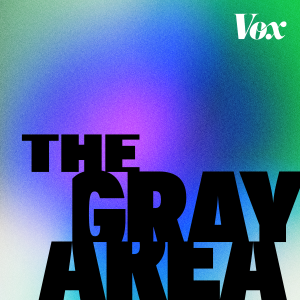
The Gray Area with Sean Illing
Society & Culture:Philosophy

Why good people are easily corrupted (with Lawrence Lessig)
 2019-05-27
2019-05-27
Download
Right click and do "save link as"
I’ve been learning from, and arguing with, Harvard law professor Lawrence Lessig for a decade now. We have a long-running debate over whether money or polarization is the root cause of our political ills. But our debate works because we share a crucial belief: Bad institutions overwhelm good individuals.
In his latest book, America, Compromised, Lessig is doing something ambitious: He’s offering a new definition of institutional corruption, then showing how it plays out in politics, academia, the media, Wall Street, and the legal system. This is a definition of corruption that doesn’t require any individual to be corrupt. But it’s a definition that, if you accept it, suggests much of our society has been corrupted.
Here, Lessig and I discuss what corruption is, how to understand an institution’s purpose, whether capitalism is itself corrupting, our upcoming books about the media, how small donors polarize politics, Lessig’s critique of democracy, why good people are particularly susceptible to institutional corruption, whether we should ban private money in politics, and ways to reinvent representative democracy. So, you know, nothing too big or heady.
Book recommendations:
The Half Has Never Been Told: Slavery and the Making of American Capitalism by Edward E. Baptist
Political Order and Political Decay: From the Industrial Revolution to the Globalization of Democracy by Francis Fukuyama
The Age of Surveillance Capitalism: The Fight for a Human Future at the New Frontier of Power by Shoshana Zuboff
view more
In his latest book, America, Compromised, Lessig is doing something ambitious: He’s offering a new definition of institutional corruption, then showing how it plays out in politics, academia, the media, Wall Street, and the legal system. This is a definition of corruption that doesn’t require any individual to be corrupt. But it’s a definition that, if you accept it, suggests much of our society has been corrupted.
Here, Lessig and I discuss what corruption is, how to understand an institution’s purpose, whether capitalism is itself corrupting, our upcoming books about the media, how small donors polarize politics, Lessig’s critique of democracy, why good people are particularly susceptible to institutional corruption, whether we should ban private money in politics, and ways to reinvent representative democracy. So, you know, nothing too big or heady.
Book recommendations:
The Half Has Never Been Told: Slavery and the Making of American Capitalism by Edward E. Baptist
Political Order and Political Decay: From the Industrial Revolution to the Globalization of Democracy by Francis Fukuyama
The Age of Surveillance Capitalism: The Fight for a Human Future at the New Frontier of Power by Shoshana Zuboff
More Episodes
Introducing: Now & Then
 2021-07-01
2021-07-01
 2021-07-01
2021-07-01
The science of dating
 2021-06-24
2021-06-24
 2021-06-24
2021-06-24
Honoring Juneteenth with Ibram X. Kendi
 2021-06-17
2021-06-17
 2021-06-17
2021-06-17
Digital dictatorship
 2021-06-10
2021-06-10
 2021-06-10
2021-06-10
What pandemic recovery should look like
 2021-05-27
2021-05-27
 2021-05-27
2021-05-27
The gift of getting old
 2021-05-20
2021-05-20
 2021-05-20
2021-05-20
Freedom, and what it means to have a body
 2021-05-13
2021-05-13
 2021-05-13
2021-05-13
Why are we so worried about Satan?
 2021-05-06
2021-05-06
 2021-05-06
2021-05-06
How to be wrong less often
 2021-04-29
2021-04-29
 2021-04-29
2021-04-29
Who is the real George Soros?
 2021-04-01
2021-04-01
 2021-04-01
2021-04-01
Introducing Unexplainable
 2021-03-27
2021-03-27
 2021-03-27
2021-03-27
Reframing America's race problem
 2021-03-11
2021-03-11
 2021-03-11
2021-03-11
Who owns the Western?
 2021-03-04
2021-03-04
 2021-03-04
2021-03-04
012345678910111213141516171819
Create your
podcast in
minutes
- Full-featured podcast site
- Unlimited storage and bandwidth
- Comprehensive podcast stats
- Distribute to Apple Podcasts, Spotify, and more
- Make money with your podcast
It is Free
- Privacy Policy
- Cookie Policy
- Terms of Use
- Consent Preferences
- Copyright © 2015-2024 Podbean.com


